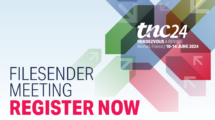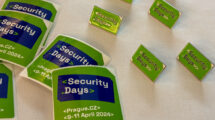This post is part of a series aiming to explain and give examples of what it means to be part of the GCP. Read the first blog on the added value and impact here.
“The sense of community gained from being part of these workgroups is fantastic. Comforting to know that this international community experience similar challenges and we can share learnings from all parts of the globe.”
The GÉANT Community Programme (GCP) is made up of Task Forces (TFs), Special Interest Groups (SIGs), bespoke workshops and trainings, and collaborative projects and services which provide an effective framework for forums to facilitate collaboration and share experiences and best practices.
One of the strongpoints of the programme is its global nature. SIGs, TFs and specialised workshops are built for and by world experts from NRENs, user organisations, research institutions, commercial and industrial sector.
Many national and regional networks, institutions, and organisations outside of Europe are long-time members and regularly bring their valuable contribution to the meetings. From Canada (CANARIE) to Australia (AARNet) and New Zealand (REANNZ) via the USA (ESNET, Internet2), Africa (WACREN, UbuntuNet Alliance, ASREN) and Singapore (SingAREN).
“Apart from TNC, the SIGs and TFs are the primary international contact forums for many of us.”
Some members have been in the GCP for quite a few years now. Their consistent participation to the meetings and activities is proof that they see value in the programme. Certain topics might come back from time to time, which allows the participants to be constantly updated on relevant technology trends and learn about different strategic and professional approaches.
Considering the global nature of the programme, it might happen that not everyone is able to join the meetings – would it be for the difference in time zones when the meetings is held online, or for impediments to travel to the meeting location when it is face-to-face. In such cases, mailing lists offer a way to keep an eye on the latest conversations and remain updated, ask questions, and find unexpected collaboration partners.
Of course, with the COVID-19 pandemic reaching its second year now, SIGs and TFs have moved all of their meetings online since the beginning of 2020. This has allowed for meetings to become more inclusive and global. Members who have never – or rarely – being able to join face-to-face meetings, had more opportunities to meet online and participate in the activities.
An example of the value of online networking is SANRen’s participation to the SIGs on Next Generation Networks (SIG-NGN), Multimedia (SIG-Multimedia) and Management of Service Portfolio (SIG-MSP). The South Africa NREN has never been able to join face-to-face meetings but has found the group’s mailing list very valuable. Being able to interact with the international community discussing shared challenges has led the NREN to significant progress in the development of some services like data transfer and cloud services in the country.
“This workgroup has been very useful to me strategically, in helping to set-up and mature our data transfer and Performance Enhancement Response Team capabilities. It has also guided me, in exploring ways to introduce cloud services.” – SANRen
Another example is the SIG on Marketing and Communications, which has doubled the number of meeting participations since the pandemic broke out, from a max of 30 attendees and an average of 4 meetings in pre-COVID times to a max of 60 attendees and an average of 5 meetings during the pandemic.
If you are interested in reading more about the GCP and are considering joining its activities and specialised groups, visit the website: https://community.geant.org/







